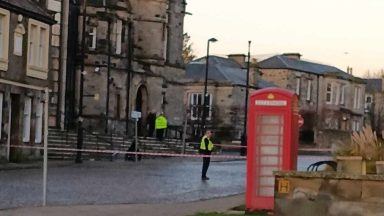Recorded hate crimes in Scotland are up 63% since the introduction of new legislation six months ago.
Figures showed in total, 5,437 hate crimes were recorded since April 1, an increase of nearly two-thirds from prior to the introduction of the act.
Of the total, 468 charges were reported to the Crown Office and Procurator Fiscal Service (COPFS), with “some form of prosecutorial action taken” in relation to almost 94% of the charges reported since April.
42 cases have resulted in conviction so far, with more than 80% of recorded crimes ongoing in court.
It was recorded that 300 hate crimes related to age – a protected characteristic under the legislation.
Figures also showed 679 hate crimes against police officers and staff were reported while on duty.
A spokesperson for the COPFS said: “COPFS takes the prosecution of hate crime extremely seriously, and we recognise that it has a hugely damaging effect on victims, their families and the wider community.
“Careful consideration is given to any reports of alleged criminal conduct which are submitted by the police and prosecutorial action taken if there is a sufficiency of evidence and if it is appropriate and in the public interest to do so.
“In the very short time since the legislation came into force 468 charges have been reported to us with some form of prosecutorial action taken in relation to almost 94% of the charges reported.
“42 charges have resulted in a conviction with a further 82% of charges ongoing in court.
“As one would expect in such a short time, many of the charges reported are still ongoing in court, and it would not be prudent to make any assumptions regarding the efficacy of legislation at such an early stage.”
What is considered a hate crime under the new law?
The Hate Crime and Public Order Act takes the current law against the stirring up of racial hatred and extends that protection to other groups.
Those protected characteristics are disability, religion, sexual orientation, age, transgender identity and variations in sex characteristics.
However, unlike the 1986 UK law on race, people must intend to stir up hatred against the other groups.
In the UK, a hate crime can be committed against a person on the grounds of race, even if the person did not intend to stir up hatred.
Under the new law to be found guilty of a hate crime, two tests must be met.
- A person must engage in behaviour or communication that is perceived by a reasonable person to be threatening or abusive on the grounds of disability, religion, sexual orientation, age, transgender identity or variations in sex characteristics.
- A person must intend to stir up hatred on the basis of these protected characteristics.
The law will apply to behaviour and speech made both in public and in private, such as in a person’s home.
That separates this law from previous legislation around hate crimes.
Just 3% of the more than 7,000 hate complaints reported to police in the first week of the new legislation coming into force were found to be a crime.
Follow STV News on WhatsApp
Scan the QR code on your mobile device for all the latest news from around the country


 Police Scotland
Police Scotland

























